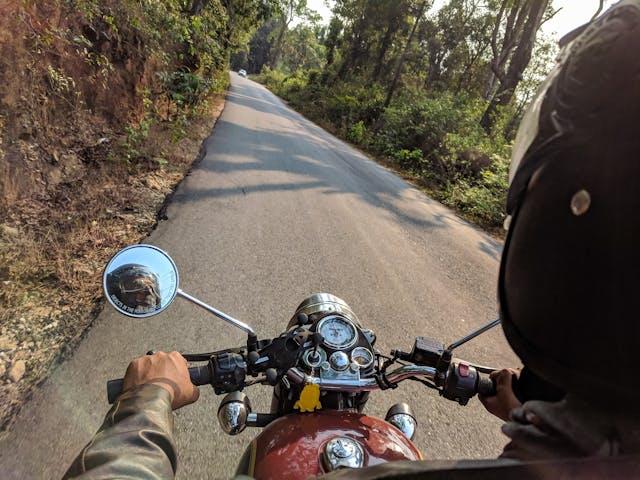Being rear-ended while riding a motorcycle is a frightening experience that can result in serious injuries and significant damage to your bike. Motorcyclists are especially vulnerable in such collisions due to the lack of protection compared to other vehicles. Knowing the proper steps to take immediately following the accident can help ensure your safety, protect your rights, and facilitate the claims process. Here’s a comprehensive guide on what to do if you are rear-ended on a motorcycle.
Ensure Immediate Safety
Your first priority after being rear-ended is to ensure your safety and the safety of others involved. If you are able, move to a safe location away from traffic to prevent further accidents. Turn on your hazard lights or use other means to signal to other drivers that there has been an accident.
Check For Injuries
Motorcycle accidents can result in serious injuries. Check yourself and any passengers for injuries. Even if you feel fine, it’s important to remember that some injuries may not be immediately apparent due to adrenaline and shock. Look for obvious signs of injury such as bleeding, broken bones, or severe pain.
Call 911
Regardless of the severity of the accident, it’s crucial to call 911. Inform the dispatcher that you’ve been in a motorcycle accident and provide details about your location and the number of people involved. Emergency responders will assess the situation and provide necessary medical care, and the police will document the accident.
Seek Medical Attention
Even if you feel uninjured, the motorcycle accident attorneys in Louisville advise that it’s important to seek medical attention. Some injuries, such as internal bleeding or concussions, might not be immediately apparent. A medical professional can properly assess your condition and provide necessary treatment. Additionally, having a medical record of your injuries can be crucial for any future insurance claims or legal actions.
Document The Scene
While waiting for emergency responders, if you are physically able, gather as much information as possible. This documentation will be valuable for insurance claims and potential legal proceedings. Key actions include:
- Taking Photos: Photograph the scene of the accident, including your motorcycle, the other vehicle, any visible injuries, and road conditions. Take wide shots and close-ups from multiple angles.
- Collecting Information: Exchange contact and insurance information with the driver who rear-ended you. Obtain names, phone numbers, addresses, driver’s license numbers, license plate numbers, and insurance details.
- Witnesses: If there are any witnesses, ask for their contact information and a brief statement of what they saw. Witness testimonies can be crucial in determining fault.
File A Police Report
When the police arrive, provide them with a detailed account of the accident. Make sure to get the names and badge numbers of the responding officers and ask how you can obtain a copy of the police report. The police report will be an important piece of evidence in your insurance claim and any potential legal actions.
Notify Your Insurance Company
Contact your insurance company as soon as possible to report the accident. Provide them with all the information you have gathered, including the police report, photos, and contact details of the other driver and witnesses. Be honest and thorough in your account of the accident. Your insurance company will guide you through the claims process.
Keep Detailed Records
Maintain detailed records of all medical treatments, repair estimates, and any other expenses related to the accident. Keep copies of all correspondence with insurance companies and other parties involved. This documentation will be essential for supporting your claim and ensuring you receive appropriate compensation.
Consult With An Attorney
Motorcycle accidents often result in serious injuries and complex legal situations. Consulting with an experienced personal injury attorney can help protect your rights and ensure you receive fair compensation. An attorney can assist with navigating the claims process, negotiating with insurance companies, and representing you in court if necessary.
Being rear-ended on a motorcycle can be a traumatic experience, but knowing the steps to take immediately afterward can make a significant difference in your recovery and the outcome of your claims. By following these steps, you can better protect your rights and work towards a full recovery.
